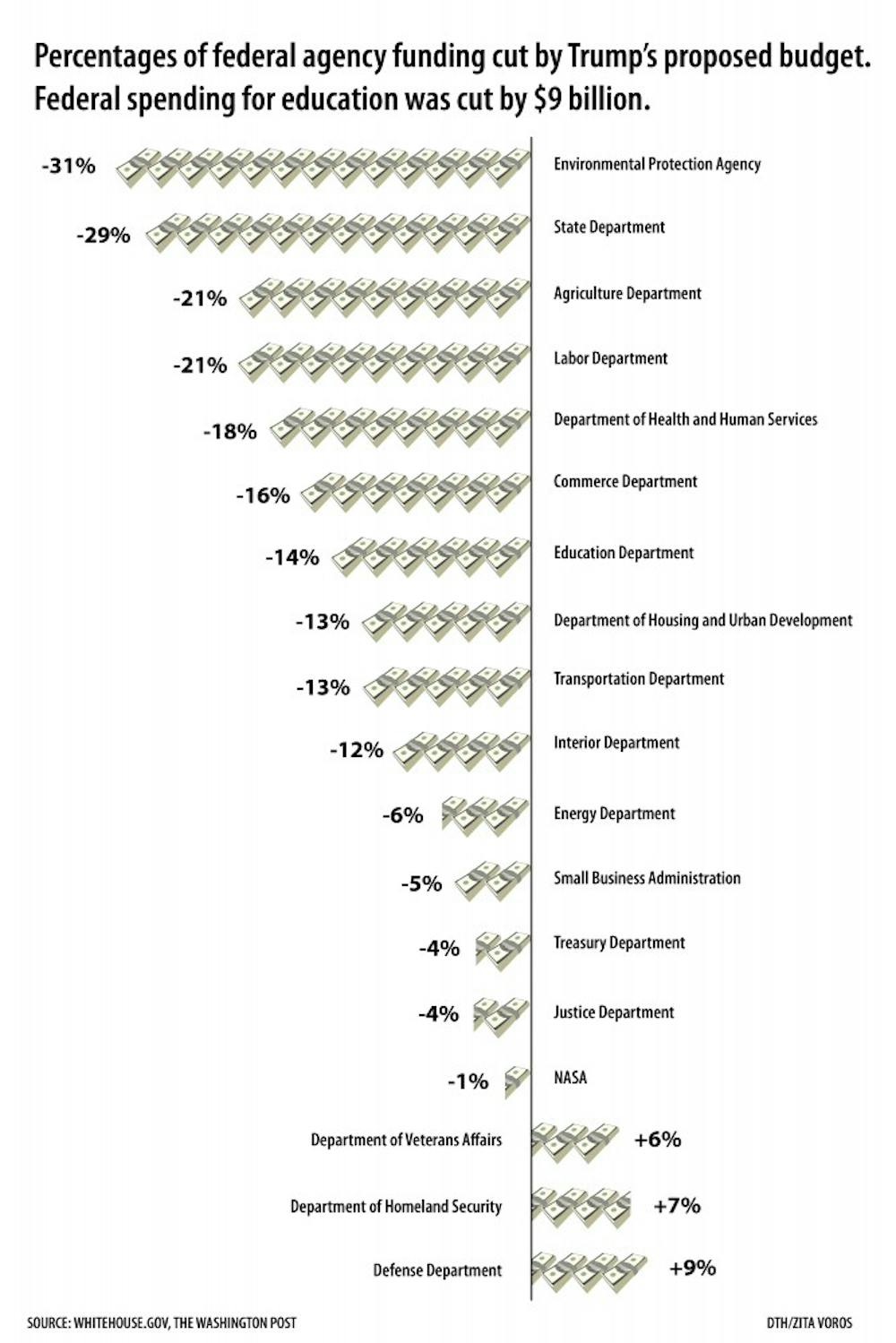The Donald Trump administration took steps to shift policy in the Department of Education this month — proposing a $9 billion cut in federal spending and increasing state autonomy over education standards.
The March budget proposal expands defense and homeland security spending while cutting $18 billion from other federal agencies.
Meanwhile, the White House proposed a $1.4 billion increase in funding school choice programs, including an additional $168 million increase for charter schools. The budget also calls for a $1 billion increase to Title I, which provides additional assistance to local educational agencies and schools with high numbers of low-income K-12 students.
Gerard Robinson, resident fellow at the American Enterprise Institute, a conservative-leaning think tank, said Trump’s budget is ultimately in line with his campaign promises to his supporters.
“He committed himself to parental choice, so to see that big of an increase for school choice programs, that’s a commitment to his constituency,” he said.
Despite the boost for school choice in the K-12 system, higher education affordability took a hit. Trump's budget proposes cuts to federal work study and Pell Grant funds — as well as the complete elimination of the Federal Supplemental Educational Opportunity Grant.
“With any budget you have winners and losers, and this is going to surely impact some students who are low-income,” Robinson said. “But while all students who are poor in higher ed won’t get everything they want, they all won’t have everything taken away from them, that just won’t happen.”
But Rep. David Price, D-N.C. said the president's budget ignores his campaign tenet to provide economic mobility.
“This isn’t a skinny budget; it’s a starvation budget,” he said. “…These radical cuts would make it impossible to make the investments in our future that a great country must make.”



